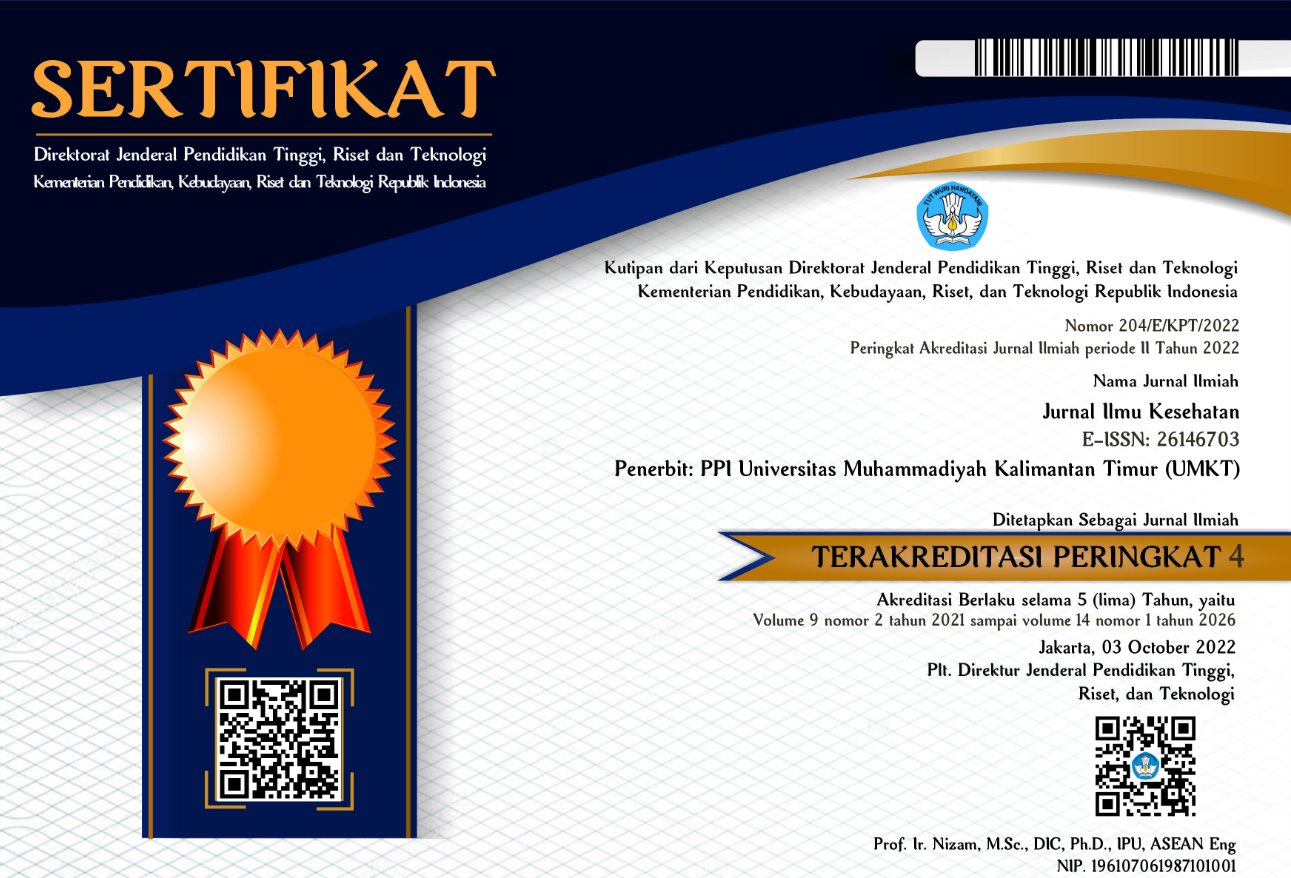The WASTE SEPARATION TREATMENT AND INFORMATION EXPOSURE TO HOUSEHOLD WOMEN IN PELANTAR OF TANJUNGPINANG CITY, INDONESIA
DOI:
https://doi.org/10.30650/jik.v9i1.2215Keywords:
Pelantar of Tanjungpinang City, Waste type classification, HousewivesAbstract
Pelantar of Tanjungpinang City is a densely populated area and the center of the community's economy where attention to household waste management has not been carried out according to requirements. Housewives still process the waste that is not in accordance with the classification of waste types. The information obtained from the government is still deemed inadequate. The study aimed to explain the relationship between the treatment of waste management and information exposure to housewives in Pelantar of Tanjungpinang City. This research method was categorized as an analytic observational study with a cross sectional approach. The number of population was 964 people and the number of sample was 91 people using purposive sampling technique, namely the housewives in Pelantar of Tanjungpinang City. The hypothesis testing used the Chi Square test. The results of this study showed that there was no relationship between the public knowledge (0.063) and the household waste management. There was a relationship between the community attitudes (0.003) and the household waste management. There was a relationship between the community action (0.000) and the household waste management. There was a relationship between the information sources (0.002) and the household waste management in Pelantar of Tanjungpinang City. This research concludes that there were three variables related to the household waste management, namely attitudes, actions and sources of information. It is suggested that the Tanjungpinang City Administration collaborate with cross-sectoral efforts to increase socialization and education regarding the household waste management, and the community reduce the waste piles and implement the 5 R reduce, reuse, recycle, replace and respect.






